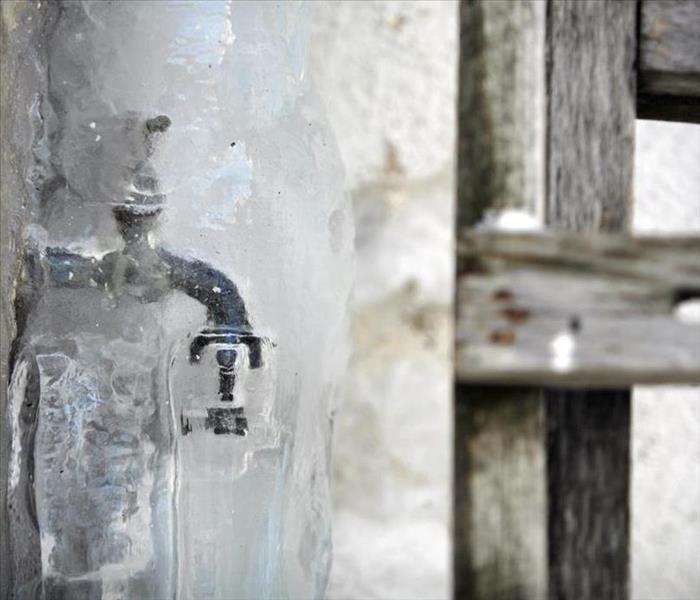Is Water Damage From a Frozen Pipe Burst Covered by Insurance?
6/13/2022 (Permalink)
Discovering a pipe burst in your Cedar City, UT, home can turn into a devastating experience. The best approach is to do all you can to prevent your pipes from freezing. Even a small quantity of water can result in a lot of damage in a short time, so one of the first actions you'll need to take is to file an insurance claim with your homeowner's insurance company. Most of the time, insurance will cover loss from a burst pipe.
This coverage will help cover the costs of hiring the emergency cleanup services of water damage restoration professionals. Although nothing is guaranteed, the following tips can help you significantly reduce the chances of your pipes freezing so you don't have to worry about pipe bursts.
How To Prevent Frozen Pipes
1. Leave Your Faucets Dripping
On those freezing winter nights, you should leave the indoor faucets near exterior walls dripping. Letting them run slightly will keep water constantly flowing through your pipes, preventing the water from freezing and relieving pressure in frozen pipes.
2. Keep Your Thermostat Turned Up
During the coldest months of the year, it is essential to ensure your home's thermostat stays set to at least 55 degrees. Keeping your home at this temperature probably isn't a problem unless you plan to be away from home for an extended time. If you are leaving for a while during the cold months (e.g., if this is a vacation home), make sure the indoor temperature stays warm enough to keep the pipes from freezing.
3. Insulate Your Exposed Pipes
You have several choices for safeguarding your pipes, such as heat tape and foam insulation. It's important to insulate all exposed pipes, including the lines in and near your attic and crawlspace. You must also protect the pipes in your home's exterior walls. This protection will help you get the most reimbursement from an insurance claim. Also, keep the cabinets open during freezing temperatures to give your home's warm air easier access to the pipes underneath.
4. Maintain Your Exterior Faucets
When the weather begins getting cold, you should detach water hoses from exterior faucets. A hose attached to a tap won't allow it to drain thoroughly. In freezing temperatures, the water will freeze and then expand. This interior expansion will cause the faucet to break. If possible, it's also helpful to shut the water off to the exterior faucets. You can get faucet covers at a hardware or home improvement store to keep on the taps throughout the winter.
5. Shut Off Water Supply and Drain Your Pipes
If you are leaving your home and expect to be away for more than a couple of days in the winter, turn off the water supply to your home. Then drain the pipes to make sure there is no lingering water.
It's best to be proactive to try everything possible to avoid a pipe burst. However, nothing is guaranteed, and you may have to file a homeowners insurance claim. Call your homeowner's insurance company to review your coverage to be confident you're as prepared as possible if a disaster does occur.



 24/7 Emergency Service
24/7 Emergency Service
